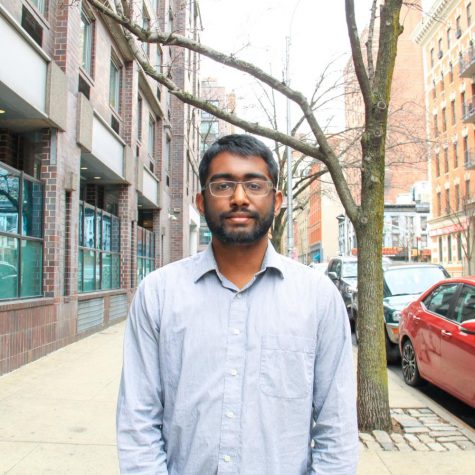MoviePass Failed but New Services Are on the Horizon
MoviePass gave us more than just a great bargain — it revived the moviegoing experience.
MoviePass recently overhauled its subscription service, upsetting some users.
September 7, 2018
You and your friends arrive at the Regal Union Square Stadium 14 to catch Tom Cruise risking his life in his latest summer blockbuster, “Mission: Impossible — Fallout.” Most of them bought their tickets in advance online, dumping $17.40 each, but you’re feeling superior because you have your handy MoviePass. While they go to spend more than they should on concessions, you visit the kiosk to use your MoviePass (which only costs $9.95 a month). But suddenly the app crashes and won’t let you check in to see your film. No explanation, no warning. All of a sudden your MoviePass is futile and you are left with no means of being able to watch Cruise hang off a helicopter anymore. What happened?
The independent movie subscription service — which before its recent shift offered essentially unlimited trips to the theater for $9.95 a month — was designed by Netflix co-founder Mitch Lowe to make the moviegoing experience more accessible. But a blackout on the app during the opening weekend of “Fallout” in July brought a sudden halt to dreams of a world where sinking into a plush chair with a gigantic screen before you could have been as inexpensive as a monthly Hulu subscription.
MoviePass’s business model was always questioned but was ultimately praised for its overall ambition — stunning moviegoers and industry members with its shift from a $50 membership fee last year. At one point it garnered comparisons to Netflix and Spotify, especially following its ascension to more than two million subscribers.
NYU students who were once loyal MoviePass subscribers are heartbroken and enraged to see their golden ticket turn bronze: the current MoviePass plan is the same price but patrons can only see three movies per month with a daily rotating list of films MoviePass itself selects. Seats cannot be reserved in advance and there are no discounts on buying concessions or extra tickets.
“I think it’s more annoying now that they’ve now made it three movies a month and you can’t see movies more than once,” Tisch sophomore Sam Lowenburg said.
Steinhardt junior Miya Fieleke canceled her MoviePass in early May when “they would no longer allow repeat movie viewings,” a while after the release of “Avengers: Infinity War.” “Since then, MoviePass has constantly been changing its terms of agreement, so I’m glad I left when I did. I do feel bad for the company, though.”
In many ways, MoviePass pumped life into movie theaters. Domestic theater attendance hit a 25-year low in 2017, exacerbated by a dismal summer 2017 box office. According to a survey conducted by the National Research Group for The Hollywood Reporter, and released in April 2018, the service’s subscribers were twice as likely to go see a movie its opening weekend, and 49 percent were seeing movies they normally would not see. MoviePass undeniably had an impact on some casual moviegoers’ habits and posed a potential solution to intense competition from streaming and home video services.
The most disheartening aspect of the service’s recent decline is the reverse effect it could have on moviegoing habits. MoviePass patrons were seeing more movies and a larger variety of them than ever before. With the growing worry of declining theater attendance, subscription services emerged as a saving grace for preserving the theatrical experience and theater chains.
But just because MoviePass couldn’t do it, the concept of accessible cinema may not die in the dust. MoviePass has forged a legacy that has influenced theater chains across the country.
“Companies like AMC seem to be replicating MoviePass’s goals, with incentives like $5 ticket Tuesdays and the A-list subscription,” said Fieleke. “If anything, MoviePass’s impact on the cinema-entertainment world will continue to benefit college students, even after its eventual collapse.”
AMC Stubs A-List, which the theater chain launched this past June, allows A-List members to see three movies a week, buy tickets online, reserve seats in advance and get discounts on concessions for just $19.95 per month. But that leaves out all other major theater chains.
Rival independent subscription service Sinemia recently modified their previous $30 per month plan to one almost exactly like what MoviePass has right now: three movies a month for $9.99 but with the added benefit of online ticketing and the option to buy a more expensive family plan to include extra tickets. Sinemia and A-List are attempting to replicate MoviePass’ original appeal and provide consumers with the best theater experience.
The task of raising theater attendance is easier said than done. Subscription services could definitely establish themselves as the next major shift in the industry after streaming. Or, they could be a fad that quietly fades out — much like 3D, which gained traction in the early 2010s but is much less popular now). MoviePass offered a flawed solution to the plummeting theater business, but there is still hope for other companies like Sinemia to jump in and reinvigorate moviegoing.
Email Guru Ramanathan at [email protected].


























































































































































